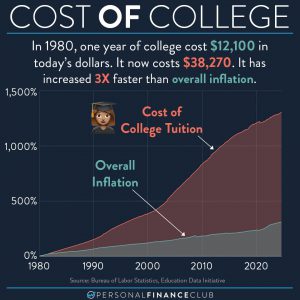
The message here isn’t “buying is dumb”. The message is “understand the true costs of home ownership”. No matter where you live, buy or rent, it costs you money. The more home you live in the more it will cost you. Don’t be “house poor”. Don’t buy a huge house thinking it’s a great investment. It’s not. It’s a luxury. Everything in this graphic is a conservative estimate of the true costs.
• Closing costs (buying): Inspections, escrow, title insurance, etc.
• Mortgage payments: In 1990 mortgage rates were over 10%. This payment is based on the average over the last 30 years of 6.3%. I didn’t even count the many refinancing costs you would have to pay to lock in the lower rates.
• Homeowner’s insurance: About 0.5% of the value of the home per year.
• Maintenance: About 2% of the value per year. I know this seems high, but roofs, water heaters, paint, driveway, flooding, remodel, etc, etc. It adds up quick.
• Property tax: Varies a lot by state, but 1%/year is pretty typical.
• Realtor fees (Selling): 6% paid by seller on closing. Didn’t count things like staging and other closing fees.
• Sale price: Appreciation of a $100K house over the last 30 years.
This is optimistic because it assumes living in the exact same house for 30 years. Every time you move you ramp up the closing cost fees, realtor fees, plus moving fees.
If you had taken all the money you spent on the house and invested it in the S&P 500 over the exact same 30 years, instead of losing $161,342, your investment would have grown to a positive $1,978,447. If you can live in a less expensive house and invest the difference you’ll build way more wealth over the long haul.
Buying your primary home isn’t an investment. It’s a forced savings account with negative interest. You only get back some of what you put in.
As always, reminding you to build wealth by following the two PFC rules: 1.) Live below your means and 2.) Invest early and often.
– Jeremy
via Instagram

 September Sale!
September Sale! 



